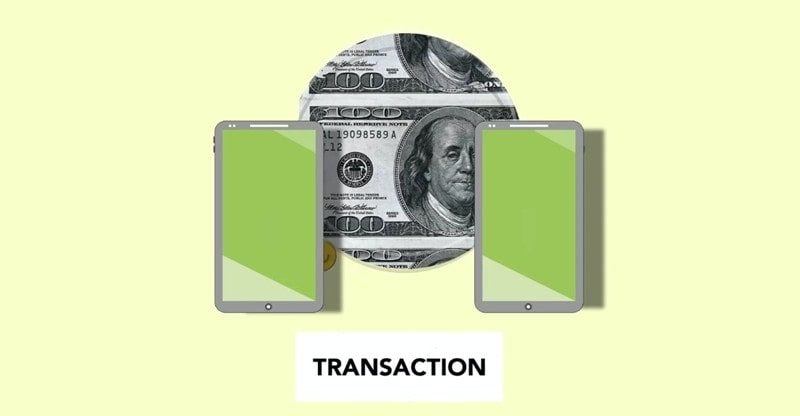Sending Money Abroad: Useful Tips to Keep Your Transaction Safe
Sending money abroad can be a difficult and complicated process. Depending on the countries involved, there may be additional regulations or restrictions to take into account. With this in mind, it is important to ensure that you are taking all the necessary steps to keep your transaction safe. It’s essential to know the local laws and regulations, as well as understand the different methods of sending money. Here are some useful tips for sending money abroad.
1. Use a reliable service provider
When you are sending money abroad, it is important to choose a reliable service provider. Make sure the provider has a good reputation and offers competitive exchange rates. It is also essential to check that the provider is registered with regulatory bodies such as FinCEN or HM Revenue & Customs (HMRC). For example, if you want to send money to Philippines from UK, you should look for a service provider registered with HMRC.
Additionally, read the terms and conditions carefully before signing up for a service. It’s important to be aware of any hidden fees or charges that may apply. If you are still unsure, ask the provider to explain their services in more detail.
2. Check documentation requirements
Different countries have different rules and regulations when it comes to sending money abroad. For example, before you send money to Colombia, it is important to check if there are any documentation requirements that need to be fulfilled. It could be anything from a passport or visa for the recipient, to proof of address or income.
Additionally, some countries require special permission for sending money abroad. Make sure that you are aware of these requirements in advance. It’s also important to keep all the documents related to your transaction safe, in case you need them later.
3. Compare fees and exchange rates
Before sending money abroad, make sure you compare the fees and exchange rates of different services. Different service providers offer different rates and charges, so it is important to choose the one that offers competitive rates. Additionally, look out for any hidden fees or commissions that may apply.
Also, keep in mind that there is often a minimum transfer amount required. It’s important to be aware of all these details before you make the transfer. While it may be tempting to go with a service that offers the lowest fees, always check the exchange rates too.
4. Use a secure method of payment
It’s essential to use a secure method of payment when sending money abroad. Many service providers offer multiple payment options such as bank transfers, credit cards, debit cards, and online wallets.
Make sure that you are aware of the security measures associated with each option before making your choice. For example, if you are using an online wallet like PayPal or Skrill, check if there are additional fees or limits on transactions before transferring the money.
Additionally, never share your payment details with anyone over email or phone. It’s important to be aware of any potential scams and never reveal confidential information.
5. Keep records of your transactions
When you are sending money abroad, it is important to keep a record of all the transaction details. This includes the amount transferred, the date of transfer, and the service provider used. Additionally, keep copies of all the documents related to your transaction safe.
In case there is a problem with the transfer or you need to dispute any fee or charge, these records will come in handy. If you are using a service provider, make sure that you keep their contact details handy in case of any queries or issues. It’s also important to check your account balance regularly. This helps ensure that your money is received safely.
6. Monitor exchange rate fluctuations
Exchange rates can vary day by day, sometimes even hour by hour. Be sure to check the rate before making a transfer and time your payment strategically if possible. Consider signing up for exchange rate alerts to stay informed of changes in the currency market.
Additionally, you should closely monitor the currency rate to determine when is the best time to make a transfer. This will help you save money on costly fees, as well as help you time your payment strategically.
It’s also important to note that both the foreign and domestic currencies you are exchanging could fluctuate throughout the transaction process.
7. Be aware of scams
Be aware of scammers and fraudsters when sending money abroad. They can often disguise themselves as legitimate service providers and may even offer competitive rates to entice customers.
However, they might be charging exorbitant fees or even stealing your financial information. It’s important to verify the authenticity of any service provider before you make a transfer. Be sure to look for customer reviews online and contact the service provider if necessary.
Additionally, never share your personal information such as passwords, credit card details, or bank account numbers with anyone over email or phone calls.
8. Check regulations before sending money abroad
Different countries and different payment instruments have specific rules for payments abroad. For example, some countries may limit the amount of money you can send without needing to provide additional documentation or even permission from government agencies.
Additionally, certain payment methods have fees associated with international transfers that vary from one country to another. Knowing your options ahead of time will help ensure a safe transaction. While you should always consult a professional before making an international transfer, it’s important to be familiar with the regulations governing the transaction.
Sending money abroad can be a daunting task, but with the right knowledge and preparation, you will be able to do it safely and securely. Start by choosing the right payment option for your needs and researching any potential fees or restrictions associated with it. Keep records of all transactions in case of any disputes or issues that may arise down the line.
Also, be aware of exchange rate fluctuations and take advantage of them if possible. By knowing the regulations, spotting scams, and keeping confidential information safe, you can make sure that your transaction is both secure and successful.



